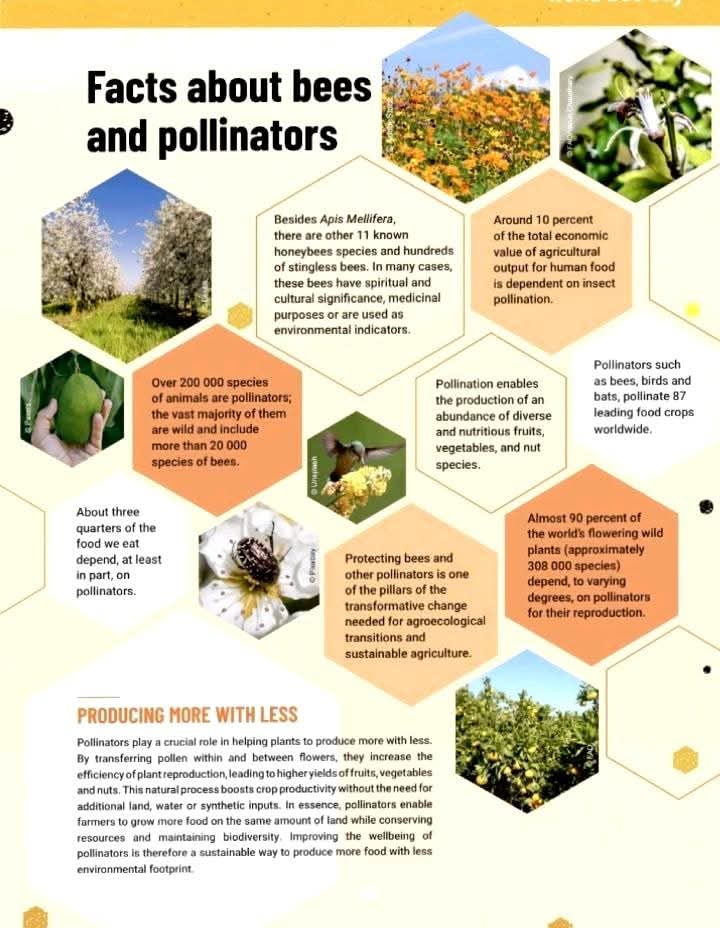Bees are winged insects that form a monophyletic clade Anthophila within the superfamily Apoidea of the order Hymenoptera, with over 20,000 known species in seven recognized families and pollinators are things that helps move pollen from one part of a flower to another.

- Diversity of bees
- Apart from the well-known Apis Mellifera (the Western honeybee), there are 11 other honeybee species and hundreds of stingless bees.
- These bees often have spiritual, cultural, medicinal significance and are also used as environmental indicators.
- Huge variety of pollinators
- There are over 200,000 animal pollinator species.
- Most are wild species, including more than 20,000 bee species.
- Dependency on pollinators
- About three-quarters of the food humans eat depends, at least partly, on pollinators.
- Globally, pollinators such as bees, birds, and bats pollinate 87 leading food crops.
- Around 10% of the total economic value of agricultural output for human food relies on insect pollination.
- Wild plants and biodiversity
- Nearly 90% of the world’s flowering wild plants (about 308,000 species) depend on pollinators for reproduction, at different levels.
- Pollination supports the production of a wide variety of nutritious fruits, vegetables, and nuts.
- Role in agriculture and sustainability
- Protecting bees and pollinators is essential for sustainable agriculture and agroecological transitions.
- They enable farmers to grow more food with fewer resources—helping conserve land, water, and biodiversity.
Producing more with less
- Pollinators increase the efficiency of plant reproduction by transferring pollen, leading to higher yields of fruits, vegetables, and nuts.
- This boosts crop productivity without the need for extra land, water, or chemical inputs.
- By improving the well-being of pollinators, farmers can produce more food sustainably while reducing the environmental footprint.
In summary: Bees and other pollinators are vital for food security, biodiversity, and sustainable agriculture. Protecting them ensures not only more abundant harvests but also a healthier environment.
Source: Sustainability


![[EXPLAINER] Facts about bees and pollinators [INFOGRAPH] Bee pollinator](https://ashenewsdaily.com/wp-content/uploads/2025/09/Bee-pollitator.jpg)